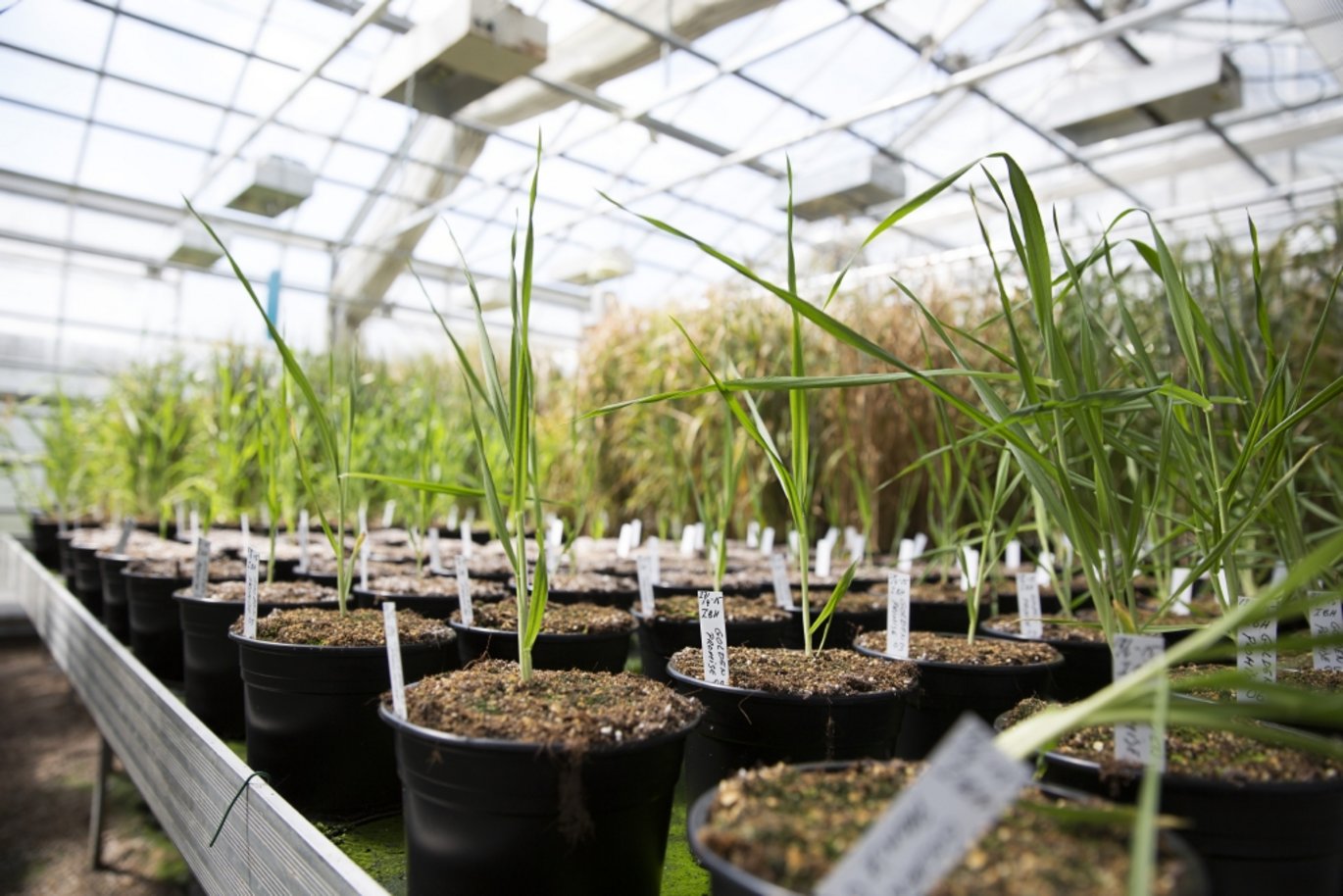CRISPR can make plant proteins easier to digest
Researchers at Aarhus University have used CRISPR/Cas9 gene editing technology to improve the digestibility of proteins in barley and soy. This groundbreaking approach holds significant potential for both the food and feed industries, offering more digestible products, improving animal feed efficiency, and reducing environmental impact.

Proteins are essential nutrients for both humans and animals. However, some plants naturally contain protease inhibitors, compounds that interfere with the body’s ability to break down proteins efficiently.
When proteins aren’t properly broken down, much of their nutritional value is lost. This is especially problematic in animal feed, where poorly digested proteins can lead to increased nitrogen emissions. Nitrogen that leaches from agriculture into aquatic environments can cause pollution and oxygen depletion. In addition, poor protein digestion reduces the efficiency of nitrogen use in manure, potentially increasing nitrous oxide emissions from fields.
How can CRISPR/Cas9 help?
CRISPR/Cas9 is a revolutionary gene-editing technology that allows researchers to precisely remove or modify specific genes within an organism’s DNA.
FACT: What’s the difference between gene editing and genetic modification?Genetic modification involves inserting foreign genes into an organism’s DNA, often from a different species, to create a genetically modified organism (GMO). This method has long been used to produce plants with desirable traits like disease resistance or enhanced nutrition. Gene editing, by contrast, is a newer technique that introduces precise changes within an organism’s existing DNA without adding foreign genetic material. CRISPR/Cas9 is one of the most well-known tools for gene editing, enabling highly targeted and controlled mutations. It’s essentially a modern version of plant mutation breeding, which has been practiced for decades. |
In this study, researchers used CRISPR/Cas9 to knock out genes in barley that encode protease inhibitors. Using both simplex and multiplex CRISPR editing, they created plant mutants in which these genes were deactivated. As a result, the proteins became significantly easier to digest, improving nutrient uptake. Interestingly, the study also found that the digestibility of added soy protein improved—suggesting that it’s not just the plant’s own proteins that are affected, but potentially all proteins present in the feed.
FACT: What is simplex vs. multiplex CRISPR?Simplex CRISPR targets and edits a single gene. |
What does this mean in practice?
The study shows that removing the genes responsible for protease inhibitors in barley has multiple benefits:
- Improved animal feed: Livestock can absorb proteins more efficiently from edited crops, meaning they need less feed to meet nutritional requirements.
- Reduced emissions and runoff: Better protein utilization leads to lower nitrogen excretion. This can reduce nitrogen leaching into waterways as well as greenhouse gas and ammonia emissions.
- Less deforestation: If plant-based proteins become easier to digest, reliance on imported soy could decrease, potentially easing pressure on forests in South America.
How was the study conducted?
The researchers focused on specific protease inhibitors in barley, including chymotrypsin and trypsin inhibitors. Using CRISPR/Cas9, they selectively removed the genes encoding these inhibitors and then tested how effectively enzymes could break down the proteins, compared to unedited plants.
The results showed a marked improvement in digestibility in the edited plants. Enzyme analysis confirmed that protein breakdown was significantly enhanced, indicating that CRISPR/Cas9 could be a powerful tool for optimizing food and feed production.
Safety and future perspectives
A key part of the research was ensuring that CRISPR/Cas9 edits didn’t cause unintended mutations that could affect the plant’s growth or nutritional value. To this end, the team performed extensive genetic analyses to confirm that only the targeted genes were altered.
Professor Henrik Brinch-Pedersen from the Department of Agroecology at Aarhus University explains:
“This research shows how we can use modern gene technologies to make plant proteins easier to digest. It can improve animal feed and reduce agriculture’s environmental footprint.”
The technology is still in its early stages, but the results from Aarhus University suggest that CRISPR/Cas9 could play a vital role in future sustainable agriculture. If approved for commercial use, it could revolutionize food production by making plant proteins more nutritious and environmentally friendly.
“With this technology, we can optimize how we use agricultural resources. At the same time, we can support a more sustainable production of protein that benefits both animal welfare and the environment. Our future studies will focus on scaling up the approach and applying it to other crops to maximize its potential,” says Professor Henrik Brinch-Pedersen.
| ITEM | CONTENT AND PURPOSE |
|---|---|
| Collaborators | Department of Agroecology, Aarhus University |
| External funding |
|
| Conflict of interest | None declared |
| Link to the scientific article | Scientific Publication: “Simplex and multiplex CRISPR/CAS9-mediated knockout of grain protease inhibitors in model and commercial barley improves hydrolysis of barley and soy storage proteins” – published in Plant Biotechnology Journal. Authors: Michael Panting, Inger B. Holme, Giuseppe Dionisio, Henrik Brinch-Pedersen |
| Contact information | Professor Henrik Brinch-Pedersen, Department of Agroecology, Aarhus University |
